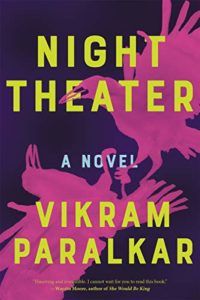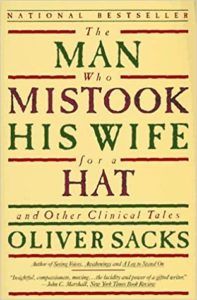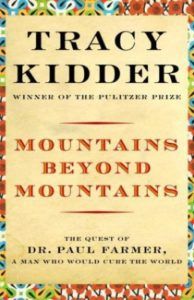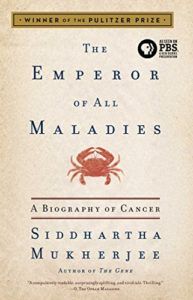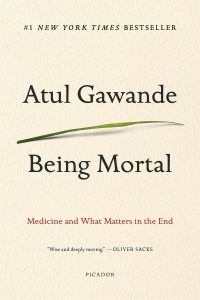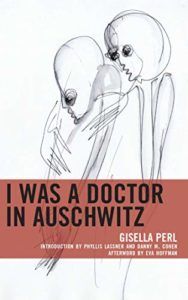Although it’s easy for me to say “flatten the curve” when I’m not the one putting myself at risk to save someone’s life, the best thing I can do is stay home, practice social distancing, and wear a cloth mask when out. However, I still want to understand what health care workers put up with emotionally, mentally, and physically when treating and advocating for their patients. Each book on this list addresses specific challenges that doctors face, whether it’s end-of-life care or treating patients under impossible circumstances. Although these books aren’t specifically about pandemics, they provide invaluable insight into the hurdles that doctors face.
6 Books That Prove Doctors are the Real Superheroes
Night Theater by Vikram Paralkar
Vikram Paralkar is a hematologist-oncologist and scientist who has two books to his name. Night Theater is the only fictional (and fantastical) story on this list, but it gives a healthy dose of reality. The story takes place in one night at a village clinic in India. Our protagonist is a capable surgeon who fled the big city due to a scandal and now has to deal with corrupt officials interfering with his clinic. One night, the surgeon is winding down when a teacher, his pregnant wife, and their young son walk through the clinic doors. But there’s a catch: all three were murdered during a violent robbery. The family is given a divine chance to live again, but only if the surgeon can treat their wounds before sunrise. While treating his unlikely patients, the surgeon learns about the mysteries of life and mortality. Why read it: Paralkar’s story is deeply philosophical and digs into the reasons that surgeons, who work at the brink of death, fight so hard for their patients. What makes the story so compelling is that while surgeons carry the power of life and death in their hands, they are fundamentally human, just like their patients.
The Man Who Mistook His Wife for a Hat and Other Clinical Tales by Oliver Sacks
Oliver Sacks was a British neurologist whose book The Man Who Mistook His Wife for a Hat and Other Clinical Tales describes some of the cases he worked on over the course of his career. The book contains 24 essays that are categorized into 4 sections: Losses, Excesses, Transports, and The World of Simple. Each addresses a specific aspect of neurologic function. While this seems dull, Sacks adds a hint of humor and humanity to each essay, such as patients who can’t recognize common objects and those with nervous tics, making readers reevaluate their presumptions on human behavior. Why read it: It’s so easy to look at a person who acts “crazy” and dismiss the entirety of their existence. Sacks’s book shows readers that the human mind is at once fragile and incredible—there’s an explanation for behavior that’s difficult to see unless you acknowledge that there’s more to a person.
Mountains Beyond Mountains: The Quest of Dr. Paul Farmer, a Man Who Would Cure the World by Tracy Kidder
Tracy Kidder is a Pulitzer Prize winner who spent years shadowing Dr. Paul Farmer, a renowned infectious disease specialist and one of the founders of the esteemed Partners in Health. Dr. Farmer’s story takes readers from Harvard to Haiti, Peru, and Cuba as he fulfills his mission to heal everyone because “the only real nation is humanity.” At the center of the story is Dr. Farmer’s dedication to his patients, whether they live in a Boston suburb or mountain in Haiti. Reading this book made me realize that health care doesn’t exist in a vacuum because treatment goes beyond the walls of hospitals. The title of the book says it all. It’s derived from a Haitian proverb “beyond mountains there are mountains.” In other words, when you solve one problem, there’s another waiting to be solved. Why read it: I’m not a doctor, but I work with many and know how much they care about their patients. Being a doctor isn’t about cashing in a six-figure salary or riding high on social capital, it’s doing the work for patients. Dr. Farmer’s story is a great example of how one dedicated health care worker can make a difference.
The Emperor of All Maladies: A Biography of Cancer by Siddhartha Mukherjee
Siddhartha Mukherjee is an Indian-born American physician and oncologist who skyrocketed to literary stardom after publishing The Emperor of All Maladies: A Biography of Cancer, which won the 2011 Pulitzer Prize for General Nonfiction. And for good reason: Mukherjee deftly weaves his experiences as a hematology/oncology fellow at Massachusetts General Hospital in the context of the history of cancer treatment and research. Mukherjee’s timeline includes the identification of cancer by Imhotep, Herodotus excising a breast tumor, the rise of mastectomies, and the National Cancer Act of 1971. Using the timeline, Mukherjee urges readers to feel the gravity of what it’s like to treat patients with cancer. Why read it: Cancer is frustratingly elusive. It seems as though the more research we do, the more questions arise. However, we sometimes get hung up on details and forget to see the big picture, which is essential to seeing where we are on the road to a cure.
Being Mortal: Medicine and What Matters in the End by Atul Gawande
Modern medicine, with its capability to diagnose, reverse, treat, and cure everything from the common cold to leprosy has one disadvantage: it isn’t very helpful for end-of-life care. Unfortunately, modern medicine hasn’t created a Philosopher’s Stone, so death from aging is still a reality. Through his own observations and research, Gawande discovered that some doctors rely on false hope, which can result in treatments that are deleterious to patient health and can even shorten their lifespans. We want to believe that doctors have all the answers, and while many times they do, Gawande reminds readers that there are limitations that need to be addressed. At the end of the day, doctors are dedicated to giving their patients a good life, not a good death. Why read it: Much like Paralkar’s Night Theater, Gawande’s Being Mortal examines the relationship between health care workers and death. It’s an impossible situation for everyone involved, but examining how health care workers address death is crucial to working with them for end-of-life care.
I Was A Doctor In Auschwitz by Gisella Perl
Gisella Perl, a Romanian Jewish gynecologist, was deported to Auschwitz in 1944. There, she was recruited to treat the female inmates without the necessary supplies. Her memoir, I Was A Doctor In Auschwitz, was published in 1948 after she came to America. Her story not only catalogs the human rights violations committed by Nazis, but also the tough decisions she had to make to protect her patients from sadistic Nazi physicians, including Josef Mengele and his horrific “medical” experiments. Perl’s memoir is a tough read, but necessary because it outlines the medical decisions that women must still make. Her writing is an excellent balance between her clinical observations as a doctor and poetic reflections as a woman surviving in an impossible situation and helping others along the way. Why read it: Understandably, everyone is turning to feel-good stories to escape from the reality of the pandemic. But if you’re looking for a book that addresses tough topics, give Perl’s memoir a chance. It’s not an easy read, but her story is a stark reminder that health care workers throughout history have operated in impossible situations and have prevailed.
What You Can Do
The COVID-19 crisis has strained the supply chain that brings critical equipment and supplies to health care workers. If you have extra personal protective equipment (PPE), consider donating it to DonatePPE. I mentioned the amazing work done by Dr. Paul Farmer for vulnerable communities around the world with his organization Partners in Health. Check them out and consider donating; they have decades of experience fighting infectious diseases. And as always, please stay home if you can and practice social distancing. Reach out to health care and essential workers in your network and let them know you’re grateful for them.

